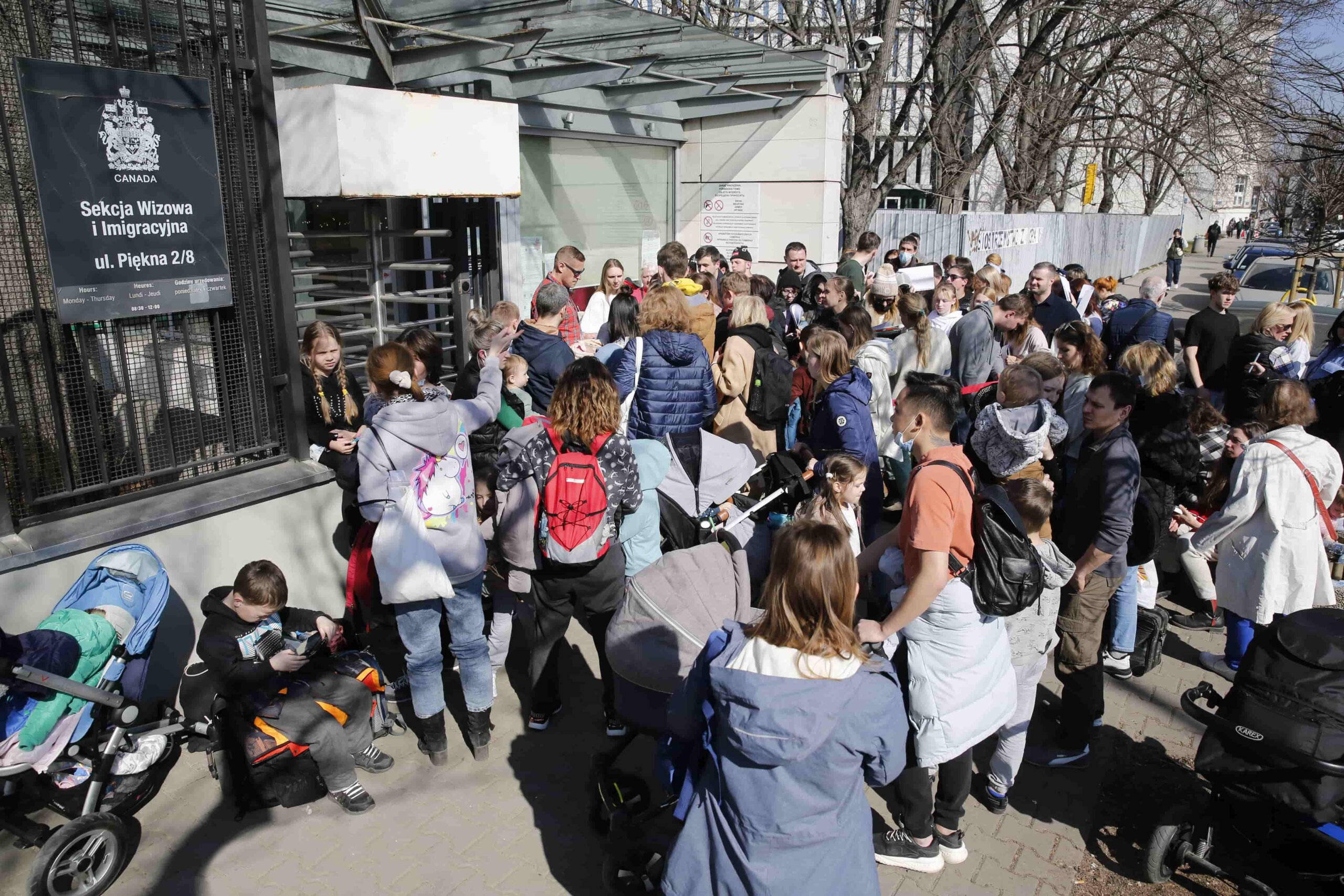Canada’s immigration backlog reportedly exceeds two million outstanding applications, with more than 110,00 refugee claims yet to be processed, according to CBC News. With the pandemic and the Canada-Ukraine Authorization for Emergency Travel further exacerbating an already large inventory, advocacy groups have spoken out about the dire implications this could have for LGBTQ+ refugees
“The backlog currently affecting refugee applications in Canada has had major repercussions for LGBTQI+ claimants who experience unique and intersecting barriers to safe resettlement,” Rainbow Railroad, which helps queer and trans individuals escape violence and persecution in their home countries, told Xtra in a written statement.
The backlog includes both refugee claimants—or people who cross the border to seek asylum once they have entered Canada—and resettling refugees who are waiting abroad to be sponsored either privately or by the government. Many are still subjected to unsafe conditions while they wait. Of this group, LGBTQ+ refugees face unique challenges, as homosexuality remains illegal in 69 nations, and countries like Nigeria attempt to criminalize trans people with bills seeking to ban “crossdressing.”
As the backlog continues to build, LGBTQ2S+ groups have called on the Canadian government to keep such vulnerable populations in mind.
“The backlog currently affecting refugee applications in Canada has had major repercussions for LGBTQI+ claimants.”
“It is very important to us that when the government has a rapid response to a crisis situation that they also consider the particular circumstances and challenges that LGBTQ+ people from those crisis situations may be facing,” Aleks Selim Dughman Manzur, co-executive director of programming and advocacy at Rainbow Refugee, told Xtra in a Zoom interview.
According to Manzur, refugee claimants and those waiting to be resettled face vastly different sets of challenges. For LGBTQ2S+ refugees already in Canada, having a backlog of interview applications means having to wait for an extended period of time, during which they’re not able to get a work permit. This delays both their ability to settle in Canada and forces them to rely on social assistance and other community resources for support.
Meanwhile, many refugees waiting abroad to be resettled into Canada are in countries that are not safe for them, with trans women especially finding themselves in hiding in their countries of asylum, Manzur said. This situation is not unique to Canada—with Britain’s recent decision to send illegal migrants to Rwanda drawing backlash—but it leads to sponsors like Rainbow Refugee having to send financial resources to people who are waiting to be resettled.
“It has an impact on the person who’s waiting,” Manzur said. “It has an impact on the communities that are welcoming them because we are using resources that were meant initially to be used in Canada for their resettlement and sending them to them because of the hardships that they are experiencing abroad.”
Many of the sponsorship applications Manzur’s organization submitted on behalf of refugees at the end of last year have not even been acknowledged by Immigration, Refugees and Citizenship Canada (IRCC), leaving an extremely vulnerable group in limbo. With much of the federal funding going to accepted refugees, refugee claimants have very few programs and support at their disposal, they said.
The lives of these asylum seekers are literally hanging in the balance, according to CBC News. HIV-positive refugees waiting to be resettled may not have access to medication or treatment abroad, while asylum claimants as a whole are experiencing deteriorating mental health amid the delay in processing applications. As the backlog increases, the urgency level of cases prioritized by the IRCC has, too, caused refugees who have presented “viable death threats” to wait for years under the same conditions.
Although organizations like Rainbow Refugee are working hard to support individuals waiting to be relocated by establishing direct contact with them and flagging urgent cases to IRCC, Manzur said their organization wishes refugees wouldn’t need to wait for their circumstances to worsen in order to be welcomed in Canada.
“We wish we didn’t have to wait for those circumstances, and that the processing time could go back to at least some kind of normalcy to make sure that we are able to provide accurate information to the people who are waiting abroad and bring them over in safety,” they said.


 Why you can trust Xtra
Why you can trust Xtra


